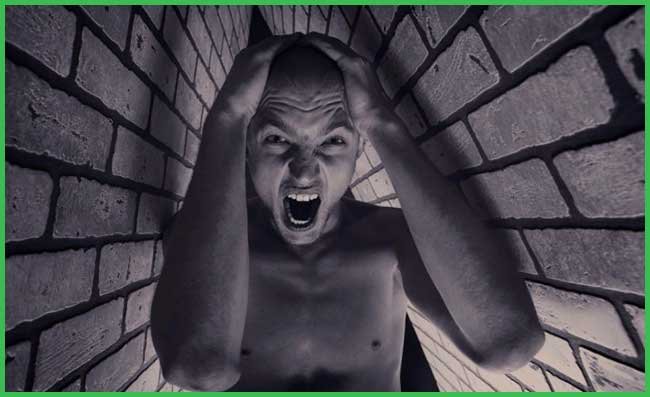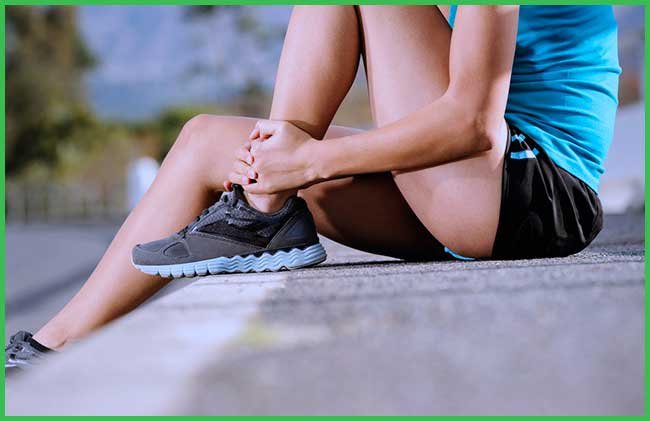
The claustrophobic panic attack can bring a devastating situation for many people.
However, there are many ways to control this kind of panic effectively, such as breathing workout, the application of desensitization methods, meditation, behavioral changes, cognitive apply, B vitamins, magnesium, and more.
What is Claustrophobia?

Fear is a normal part of our life. It is needed for evolutionary improvement, however, excessive fears are regarded as “phobias”.
One of the most severe and potential life-changing conditions is “claustrophobia”. Defined as a serious panic of being enclosed in a little room or space without having escaped.
Other regular fears, like the dark, spiders and heights; claustrophobia are regularly regarded as a “psychological disorder”.
At what time people are conscious of their claustrophobia, they will often stop going upstairs, instead of using an elevator.
Read Also: Top 11 Herbal Remedies for Depression and Anxiety
The signs of claustrophobia are similar to some other mental disorders of fear attacks like too much sweating, high heart speed, faintness, dizziness, vomiting, puzzlement, stiffness in the chest, and a real fear of hurt.
This severe phobia is not only an issue of being “scared”, but also can be happened by the range of one’s amygdala- a genetic sensitivity to claustrophobia.
Whereas there is not a certain “remedy” for claustrophobia, but there are many useful methods and behavioral cues can keep fear at bay from your life.
In this article, we will reveal some of these calming and preventative selections in detail.
How to Control Claustrophobic Panic Attack?
-
Behavioral Changes:

Firstly, claustrophobia is regularly activated by placing you a restricted circumstance. Try to keep off those scenes for controlling claustrophobia.
Such as, stop driving at rush hour, as you may fall in a traffic jam, or stay close to a door during parties or social gatherings.
You can also use a house or room for other exits to lessen those fears.
For more rational alternatives, take the stairs in place of elevators, travel by train instead of air.
-
Cognitive Behavioral Therapy (CBT):

There are many realistic applications of cognitive-behavioral therapy, which can help in changing behavior and thinking patterns.
For dealing with claustrophobia, this therapy helps patients to face their panics, normally by a process of slow contact to small spaces and the source of panic.
This kind of therapy is frequently called “desensitization therapy”, as extended exposure to the cause of panic can help the mind beat its fear.
Normally, a 30-second elevator riding may be a nightmare, and a claustrophobic will rush away from the elevator instantly.
CBT may continue on the elevator for 22-25 minutes, riding it down and up, and allowing the first panic to drop until the silly panic is faded.
-
Breathing Exercises:

One of the 1st indications of a fear attack is breathing trouble, chest stiffness, and dizziness.
Decreasing oxygen to the brain can occur the symptoms of claustrophobia, while also stop you from thinking directly.
Read Also: Top 10 Health Benefits of Echinacea # Amazing Herb for Cold, Flu or a Cough!
If you go to an expert or psychologist for your claustrophobia, they may possibly suggest simple breathing workout that you can apply when you suffer a claustrophobic fear attack onset.
Deep breathing can have a soothing effect on the body and mind, therefore stopping the alarm of this panic.
-
Meditation:

One more useful remedy for the claustrophobic panic attack is meditation.
Because it can help to focus on your thinking’s, and also self-reflect to the core reason for your serious panic.
If you can peel back the levels of your mind and reveal the basic reason for your panic, it may be easier to decrease fear related phobia.
Meditation can also decrease tension hormone levels inside the body, making it less prone to direct fight-or-flight replies to tiny spaces.
-
Magnesium Supplements:

Researchers have proven that Claustrophobic panic attack and several mental disorders are directly connected to magnesium level inside the body.
The nervous system needs magnesium for thousands of dissimilar works.
Therefore if you want to stop unexpected fear attacks, include high magnesium foods to your diet plan, for example, seeds, whole grains, beans, yogurt, and dark chocolate and fish.
-
Vitamin B:

Vitamins B is useful for your nervous system, that means, it is involved in tension levels, nervousness, fear attacks, and claustrophobia.
From serotonin making and the adrenal gland to sufferer indications, B vitamin is important to normalize physical and mental function.
B-vitamins are got in poultry, seafood, whole grains, spinach, nuts, and shellfish.
Read Also: 15 Best Home Remedies for Wounds: These Ingredients are Mostly Available at Every Home
Warning: Whereas claustrophobic panic attack and other serious phobias can be managed by the ways mentioned above, going to an expert or psychologist can also be useful.
Professional instruction is highly suggested in this kind of condition.





